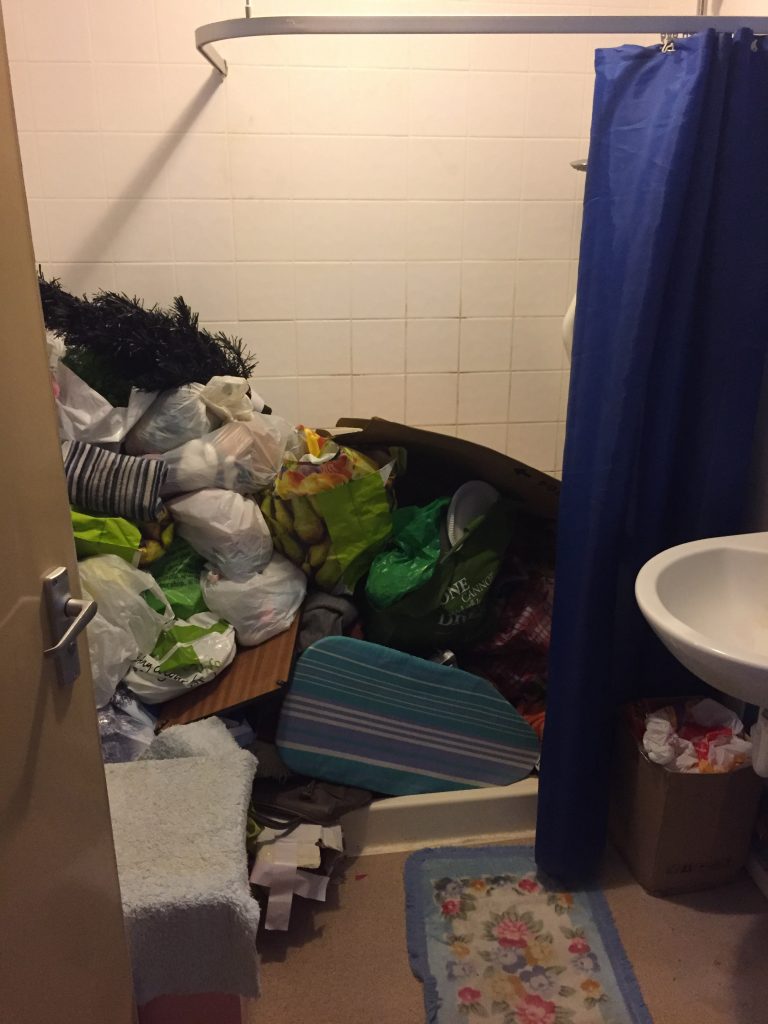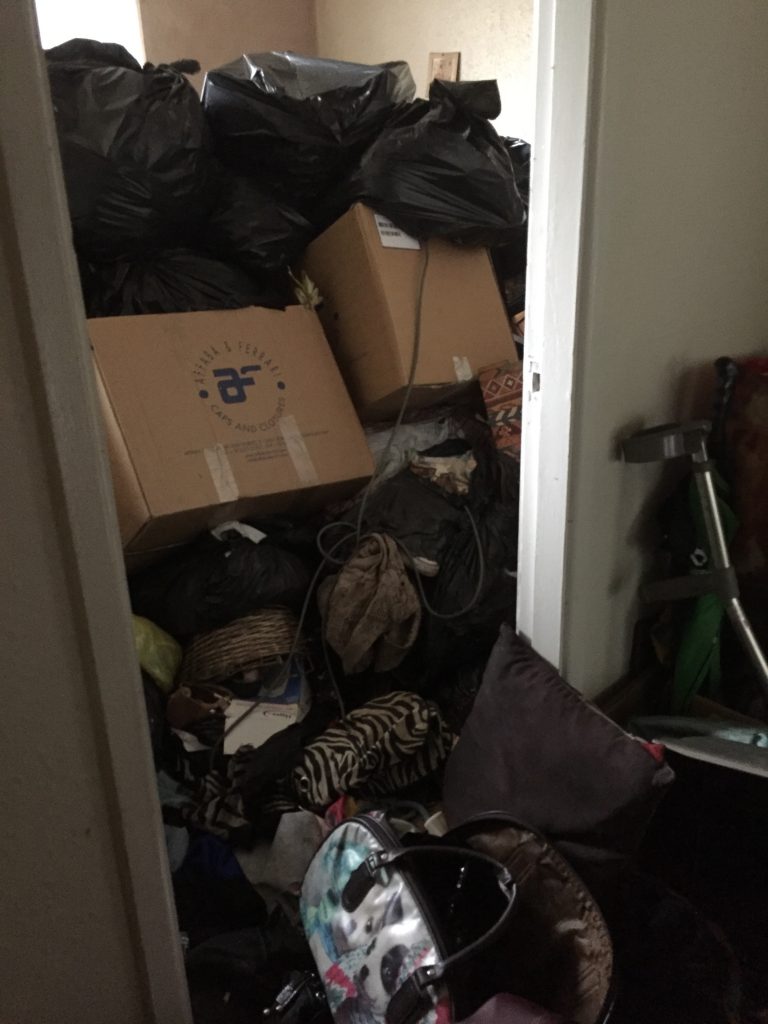
Hoarding disorder affects people in different ways, but generally speaking it is when someone acquires an excessive number of items and stores them in a chaotic manner, usually resulting in unmanageable amounts of clutter. The items can be of little or no monetary value.
Hoarding is considered a significant problem if:
- The amount of clutter interferes with everyday living – for example, the person is unable to use their kitchen or bathroom and cannot access rooms
- The clutter is causing significant distress or negatively affecting the quality of life of the person or their family – for example, they become upset if someone tries to clear the clutter and their relationship suffers.
Hoarding disorders are challenging to treat because many people who hoard frequently do not see it as a problem, or have little awareness of how it’s affecting their life or the lives of others.
Many do realise they have a problem but are reluctant to seek help because they feel extremely ashamed, humiliated or guilty about it. It’s really important to encourage a person who is hoarding to seek help, as their difficulties discarding objects can not only cause loneliness and mental health problems but also pose a health and safety risk. If not tackled, it’s a problem that will probably never go away.
Why someone may hoard

Many people who hoard have strongly held beliefs related to acquiring and discarding things, such as: “I may need this someday” or “If I buy this, it will make me happy”. Others may be struggling to cope with a stressful life event, such as the death of a loved one.
Attempts to discard things often bring up very strong emotions that can feel overwhelming, so the person hoarding often tends to put off or avoid making decisions about what can be thrown out.
Often, many of the things kept are of little or no monetary value and may be what most people would consider rubbish.
The person may keep the items for reasons that are not obvious to other people, such as for sentimental reasons, or feeling the objects appear beautiful or useful. Most people with a hoarding disorder have a very strong emotional attachment to the objects.
Both the United States of America and the UK now recognise Hoarding as a disorder in it own right.
This information was taken from the NHS website, if you would like more information on the subject please visit: https://www.nhs.uk/conditions/hoarding-disorder/

